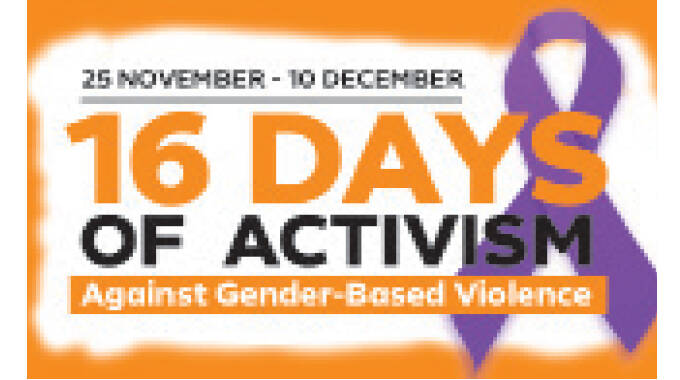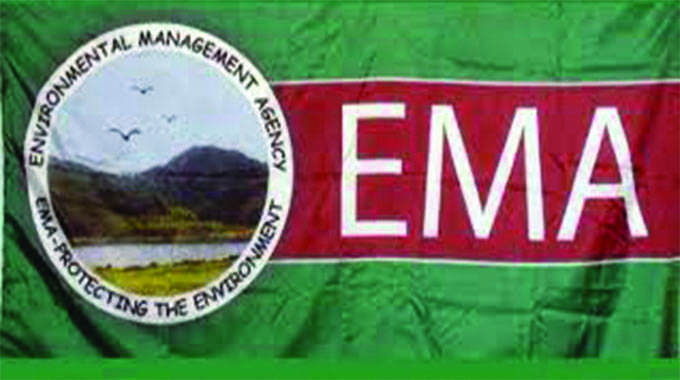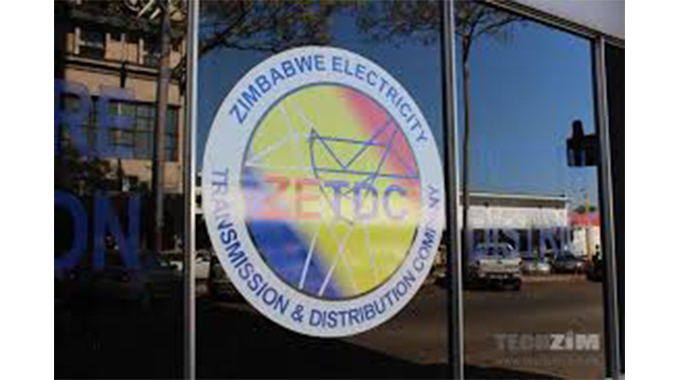Umzingwane’s most unsafe footpath for women

Sifelani Tsiko recently in Umzingwane
Sexual violence, abuse and rape have become ever-present threats for women and young girls who walk along a footpath from the Esigodini Business Centre through a bushy and rugged terrain to seek treatment at the nearby Esigodini District Hospital in Umzingwane.
Shocking attacks happen on this stretch of less than 1km as perpetrators attack women at different spots along the footpath in a bushy area just close to the hospital.
Victims are taken by surprise in broad daylight with perpetrators dragging them into the bush where they sexually assault them.
“Sexual abuse and rape is the number one safety risk for women and young girls seeking treatment at Esigodini District Hospital, just on the fringes of the business centre,” said Ms Juliet Mukoki, a programme officer of the Zimbabwe Women Lawyers Association (ZWLA) and co-ordinator for the Spotlight Initiative.
“Over the past few weeks, four women were raped in this bushy area which lies between the business centre and the hospital.
There’s a worrying prevalence of sexual abuse and rape on this 1km stretch and we have reported the matter to the police and the local authority.
“Violence is always a reality for women and young girls on this spot. It’s violence based on power with omakorokoza and other violent gangs attacking and raping powerless women.”
To address problems related to early child sexual abuses and child marriages in Umzingwane District, a group comprising the Government, ZWLA and other NGOs are spearheading programmes to raise awareness on the impact of gender-based violence on young women, girls and boys.
The programmes running under the Spotlight Initiative supported through a partnership between the European Union (EU) and the United Nations are aimed at ending violence against women and girls and harmful practices.

One Stop Centre at Esigodini District Hospital
Zimbabwe is among the 20 countries in Africa, Latin America, Asia-Pacific and the Caribbean which are participating in the four-year programme which started in 2019 and ends next year for the first phase.
The country was supported by the EU to the tune of US$30 million for the first phase to help Zimbabwe meet some of its Sustainable Development Goals (SDG 3 and 5) on empowering women and girls to realise their full potential in a violence free, gender-responsive and inclusive environment.
“Every month women and young girls are raped on this footpath as they go downhill, cross Ncema River and a railway line to seek treatment at Esigodini District Hospital,” said Ms Mavis Ndlovu, a vendor at Esigodini Business Centre.

European Union
“It’s so sad and harrowing that these women will be walking to seek treatment at the hospital. There are no kombis that ply this short route. Hiring a taxi or a mshikashika car is very expensive for us. Women and young girls have no choice and the result is that they are raped.”
Another vendor complained bitterly that there’s a police station close by but little or no action has been taken to protect the women and young girls.
“There’s a police station up there on the hill overlooking this bushy area where women and girls are abused regularly. There are no police patrols and very few of the perpetrators have been arrested,” said Ms Simiso Mabhena, a vendor from the Habane area of Esigodini.
“The police must do patrols and protect the women. The council must clear the bush so that women and girls are safe. If nothing is done, this stretch will continue to be the most dangerous rape spot for women and girls here in Umzingwane.”
Esigodini is about 43 kilometres south-east of Bulawayo and the 25-bed hospital serves people from about 16 ill-equipped clinics that are dotted around communal and resettlement areas around Umzingwane District.

Gender-based violence
Sexual harassment and other forms of violence in public spaces is a daily reality for women and girls here in Umzingwane and other parts of the country.
It often happens on the streets, in public transportation, in and around schools or workplaces, public toilets, water and food distribution sites and parks.
This reduces women and girls’ freedom of movement as well as their ability to access essential services such as health.
Mr Innocent Katsande, UN Women communications specialist said the creation of safe markets needs to be expanded to all areas so that the abuse of women and girls in public spaces is stopped.
“There’s a need to identify gender-responsive, locally relevant and owned interventions,” he said.
“We need to urgently and robustly implement developed laws and policies by all stake holders at local and national level to prevent and respond to sexual violence in public spaces.

16 Days of Activism Against Gender-Based Violence
“There’s a need for a change of attitudes and behaviour to promote women and girls’ rights to enjoy public spaces free from violence. Through the national 16 Days of Activism against gender-based violence on women and children, we want to amplify our voices against abuse of women in public spaces.”
Heavy drinking and substance abuse by artisanal miners is exposing women in Umzingwane District to regular physical and verbal violence in public spaces.
Women here said this during a UNWomen-led dialogue platform titled, “Creating safe and empowering public spaces for women and girls.”
The women complained that most local men and artisanal miners, popularly known as omakorokoza, were drinking significantly more alcohol than they did in past decades with damaging results.

“The ‘US$1 for 2’ cheap and toxic beer brands are deadly and us, as women, are paying the price of abuse in public spaces,” said Ms Sibongile Malinga of Habane.
“Women get robbed, abused and as women we’re scared of walking to Esigodini Hospital because of drunk omakorokoza who attack and rape us.”
ZWLA in partnership with the Zimbabwe Association of Church Related Hospital was supported by UN Women to set up a one-stop centre at Esigodini District Hospital.
This centre hands out ‘post rape’ kits consisting of antibiotics, antiretroviral drugs against HIV and Aids infections and pregnancy tests.
Ms Mukoki said sexual violence has damaging effects on women.
“Women who are raped here in our district are traumatised. Even some female workers at the hospital are now seeking transfer as they are terrified about the threat of rape near our hospital,” she said.

Rape
“Women are terrified of being attacked. Our local communities don’t readily accept raped women – a cruel but common attitude towards women who have been raped. Many cases go unreported because it carries a huge stigma.”
She said most women who come forward are either pregnant or sustained severe physical injuries from the rapes.
When the victims are raped, she said, they bleed from severe internal injuries and cannot control their urine.
Victims can’t walk easily and sit up for long periods as they suffer different kinds of indescribable pain.
“In some cases, there’s no closure as many victims can’t identify their assailants,” Ms Mukoki said.
“Knowing their rapists are still at large, terrifies most women here.”
Acting Umzingwane District Development Coordinator (DDC) Mrs Siphathisiwe Mlotshwa acknowledged that rape close to the hospital was a major problem.
“It’s a huge problem for us. It’s an issue of great concern to us. We’re working with all stakeholders to address this problem, but it’s not easy,” she said.

Environmental Management Agency (EMA)
“Cutting trees from this bush is not permissible by the Environmental Management Authority (EMA). Most women can’t afford the US$1 fare for a distance of less than 1km. We need to come up with a permanent solution to this as stakeholders.”
The national 16 Days of Activism against Gender-Based Violence was launched recently in Uzumba to help fight all forms of gender based violence and harmful practices.
The 16 days of Activism against GBV is an internationally recognised campaign held every year from 25 November to 10 December.
This global campaign aims to raise awareness on GBV as a human rights issue, strengthen work around GBV and provide a forum for sharing progress, strategies and challenges in ending GBV.
It also seeks to demonstrate solidarity with survivors of GBV.

Dr Sithembiso Nyoni
According to the Ministry of Women Affairs, Community, Small and Medium Enterprises Development, about 220 Zimbabwean minors were raped between January and September 2022 out of a total of 435 reported rape cases in the country.
In addition, a total of 959 sexual violence cases and 1 038 domestic violence cases were reported during the same period.
“As Government, we note with great concern, an unprecedented increase in the number of GBV cases that have resulted in deaths, suicide and murder,” said Women Affairs, Community, Small and Medium Enterprises Development Minister Sithembiso Nyoni.
“During the course of the year, we’ve also witnessed very shocking cases of sexual abuse of children. These experiences have pained us, and we need to say a big ‘NO’ to GBV to preserve and save human life and the future of our children, especially girls.”










Comments